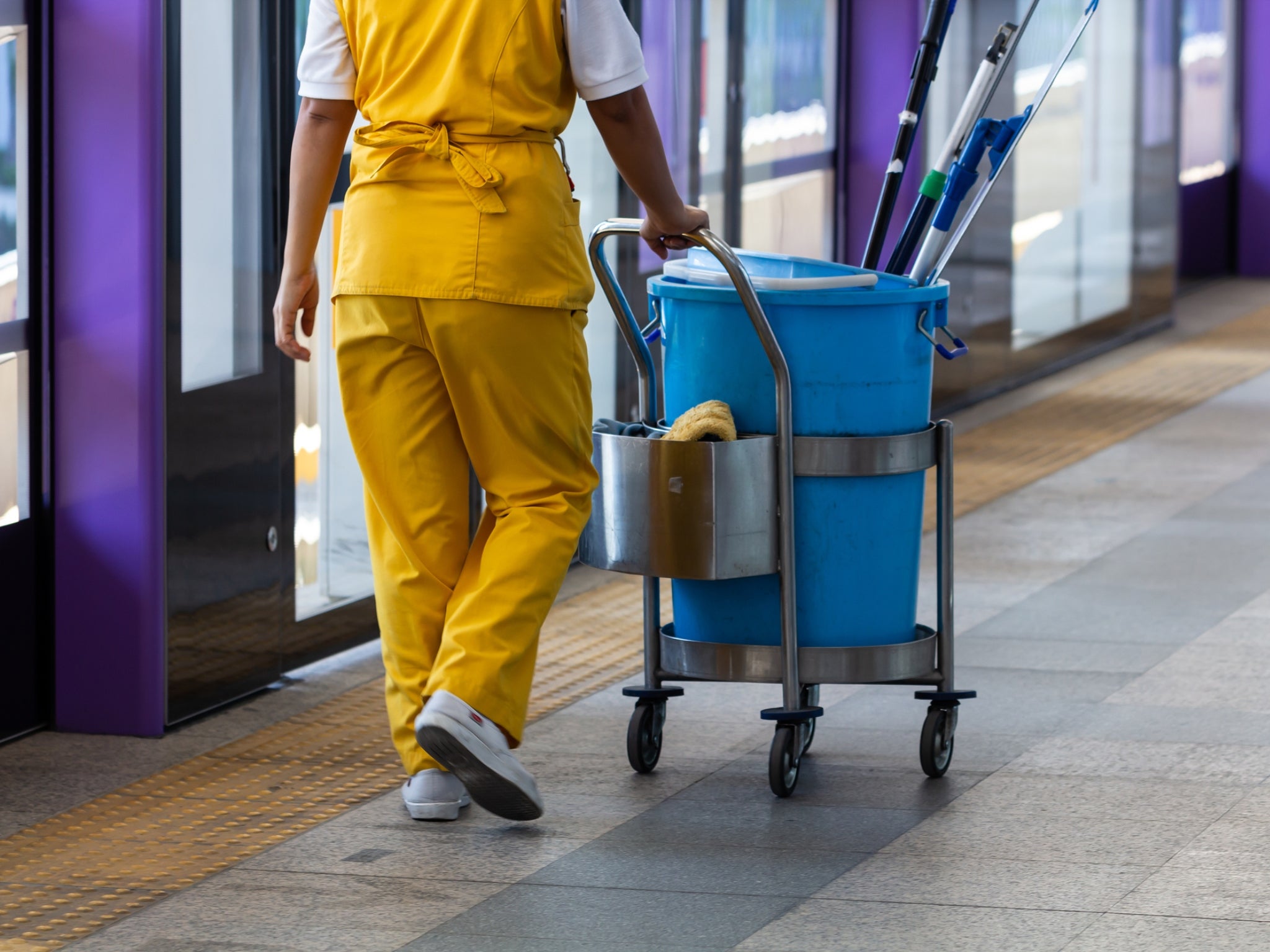‘I was a cleaner — Downing Street’s contempt for service workers is deeply rooted in office culture’
As cleaners gear up to protest outside Downing Street over a ‘culture of disrespect’, former office cleaner Scheenagh Harrington recalls her years of being an invisible foot soldier


Your support helps us to tell the story
From reproductive rights to climate change to Big Tech, The Independent is on the ground when the story is developing. Whether it's investigating the financials of Elon Musk's pro-Trump PAC or producing our latest documentary, 'The A Word', which shines a light on the American women fighting for reproductive rights, we know how important it is to parse out the facts from the messaging.
At such a critical moment in US history, we need reporters on the ground. Your donation allows us to keep sending journalists to speak to both sides of the story.
The Independent is trusted by Americans across the entire political spectrum. And unlike many other quality news outlets, we choose not to lock Americans out of our reporting and analysis with paywalls. We believe quality journalism should be available to everyone, paid for by those who can afford it.
Your support makes all the difference.Like many people, I waited with bated breath to see the contents of Sue Gray’s long-awaited report into what exactly went on in Downing Street when the rest of the population was in lockdown. I was surprised at the extent of the partying — they were all working so very hard after all — but what didn’t shock me was the comment about the cleaners being treated with a “lack of respect” and not feeling they were in a position to speak up about it.
The comment brought back memories of my years behind a duster and mop. The Downing Street culture that renders these cleaners and security staff voiceless — in the face of appalling behaviour from people whose pay grades are so far above their own — goes back a long, long way, and extends far beyond London’s corridors of power.
I began cleaning offices when I was 15. I came from a single-parent household in Hull and money was very tight, so the prospect of earning £20 a week for two hours’ work five nights a week sounded right up my alley. I worked with a company that sent me to a range of places, from offices, banks and insurance companies, to architects and law firms. The variety was nice, and while it was interesting to peek behind the scenes of companies, I quickly learned that it wasn’t so much a “be seen and not heard” environment, but one where I was completely invisible.
I was expected to go about the business of cleaning up after people (who wore clothes I could never dream of affording), silently and without disruption. I would empty their bins, no matter what they threw in them — or didn’t, because they were clearly too important to stand up and pick up the rubbish that missed.
I would sanitise their toilet seats and make sure the taps on their executive sinks sparkled. I would scrub their reception areas spotless, so their customers would get the very best impression of their business. I did this all while being ignored. To be honest, sometimes it was preferable to actually being seen. I wasn’t the most streetwise of teenagers and nobody I knew then or now harbours a burning ambition to clean offices, but some of the behaviour by male employees made my skin crawl.
There’s an entire army of people that underpins the world of work and makes sure it functions
At one location — I won’t name names — a relatively senior member of staff at a company whose offices we were cleaning deliberately brushed against a colleague’s breasts as he walked past her. She told me about it afterwards. We told our supervisor who just shrugged.
It wasn’t always men who were out of line, either. I spent several months at a law company where I experienced two extremes of behaviour. I was studying for A level law at the time, and when one of the senior partners found out, he happily photocopied reams of documents to help me. In contrast, another senior employee, this time a woman, would screech at me to “get out of her office” every time I politely asked to empty her bin. In the end, she would leave it outside her door so I didn’t have to ask.
Although this was years ago, it taught me a valuable lesson: There’s an entire army of people that underpins the world of work and makes sure it functions. They are the ones who clean your toilets; tidy your desks; take out the rubbish. They are the people who know what you had for dinner (even though you tell your other half it was a salad as they scoot the fast-food packaging into a bin liner), and they are also the people who know your true colours.
I know. I was one of those foot soldiers.
Many of the people I met during my time as a cleaner were polite, kind and considerate. But the ones who weren’t have stuck in my memory for all the wrong reasons. Did they speak to me like dirt because they thought I was beneath them because of the job I was doing? If that’s the case, then it speaks volumes about who they really were — considering the majority were in customer-facing positions.
Boris Johnson has pledged to personally apologise to the staff who were badly treated at Downing Street. I’ll be interested to know if he actually goes looking for them. But for now, the next time you see your office cleaner, if you haven’t already, go and say hello. Thank them for what they do, because without them, office life would be considerably crappier.
Join our commenting forum
Join thought-provoking conversations, follow other Independent readers and see their replies
Comments